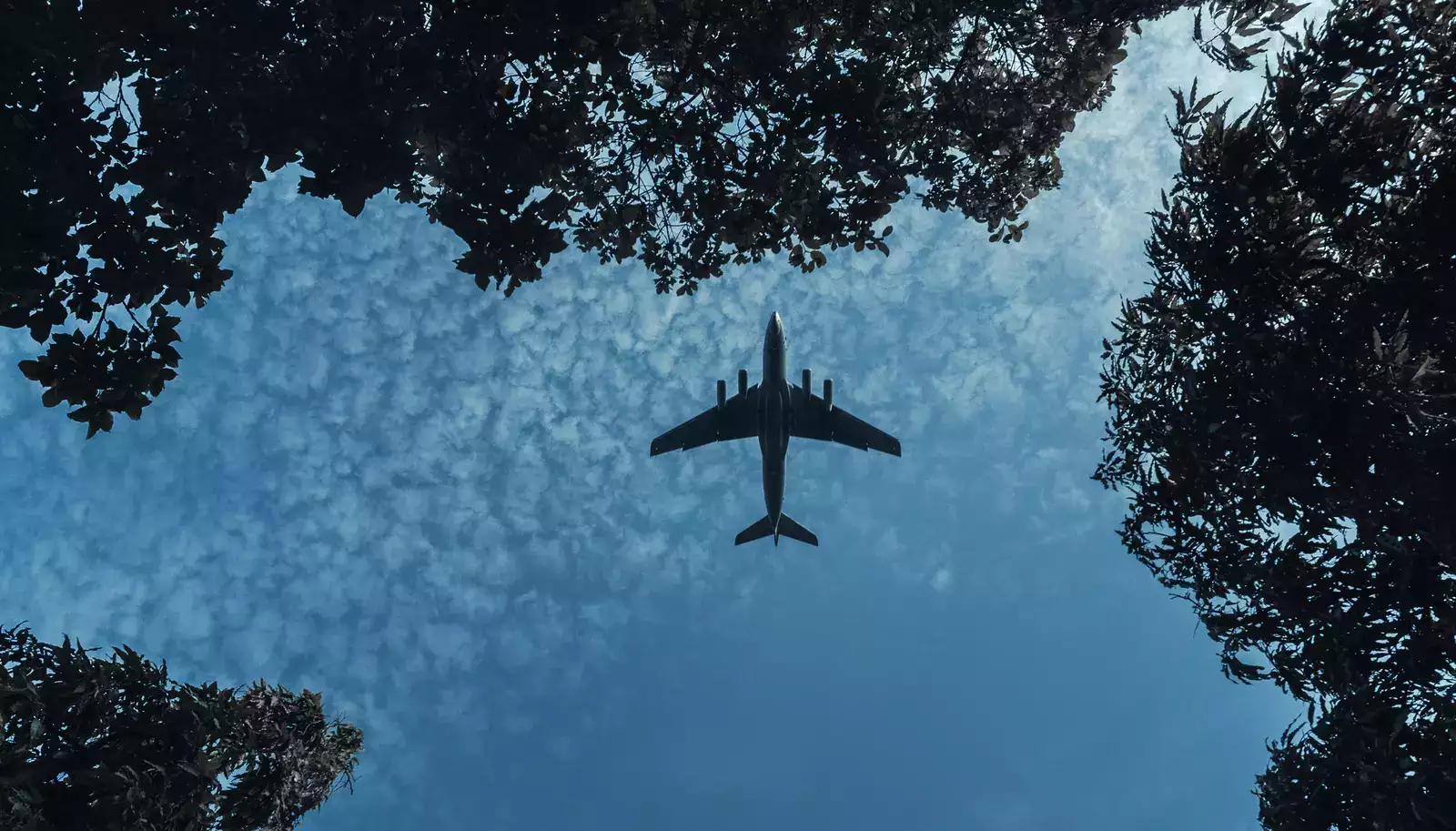Intian ilmailun tulevaisuus
Intian ilmailu valmistautuu merkittävään muutokseen, ja tavoitteena on, että vuoteen 2028 mennessä Intialla on maailman nuorin laivasto. Kunnianhimoiseen suunnitelmaan sisältyy merkittäviä ponnisteluja päästöjen vähentämiseksi osana laajempaa sitoutumista ilmailualan kestävyyteen. Alan johtajat kokoontuivat India Travel & Tourism Sustainability Conclave 2025 -tapahtumaan keskustelemaan näistä jännittävistä kehityskuluista, jotka nostavat Intian ilmailualan ympäristönsuojelun edelläkävijäksi.
Siirtyminen uuden sukupolven ilma-aluksiin
Alan asiantuntijat vakuuttavat, että intialaisilla lentoyhtiöillä on pian maailman nuorin laivasto, ja ne siirtyvät kolmanneksi suurimmasta ilmailupäästöjen aiheuttajasta yhdeksi vähiten saastuttavista aloista maailmassa. Akasa Airin toinen perustaja Aditya Ghosh ilmaisi konferenssissa optimistisuutensa tämän muutoksen suhteen. Hän totesi: "Uskon, että viiden vuoden kuluttua meillä on taivaalla nuorin lentokalusto. Numeroiden mukaan tämä johtaa vähimpiin päästöihin."
Ghosh jatkoi painottaen lentokonetilausten tulevaisuuteen suuntautuvaa luonnetta ja totesi: "2000 päivän kuluttua kansakuntamme lentokoneet heijastavat teknologian kehitystä ja hiilidioksidipäästöjen vähentämistä." On selvää, että tämä visio asettaa selkeät puitteet tulevalle.
Intian ilmailun nykytilanne
Tällä hetkellä Intia on maailman kolmanneksi suurin ilmailumarkkina, ja sen osuus maan päästöistä on 1%, mikä on vähemmän kuin maailman keskiarvo. Koska alalle odotetaan nopeaa kasvua, päästöjen lisääntymisestä ollaan huolissaan. SpiceJetin hallituksen puheenjohtaja ja toimitusjohtaja Ajay Singh vahvisti Intian sitoumuksen tulla johtavaksi ilmailualan päästöjen minimoimisessa ja korosti: "Intia tulee olemaan eturintamassa yhtenä ilmailualan vähäpäästöisimmistä päästöjen aiheuttajista."
Jännittävä kasvu edessä
Ilmailualan odotetaan kasvavan räjähdysmäisesti, ja yhä useampien ihmisten odotetaan lähtevän lentämään, mikä heijastaa kysynnän kasvua eri lentomatkustustapojen välillä. Singh mainitsi erilaisten lentotekniikoiden jännittävät näkymät ja oli samaa mieltä siitä, että logistiikka kehittyy matkustajien mieltymysten mukana.
Air India Expressin toimitusjohtaja Aloke Singh keskittyi lentokoneiden nykyaikaistamiseen ja totesi, että Air India Expressin laivastossa on tapahtunut vaikuttava muutos: ennen AirAsia India -yhtiön kanssa vuonna 23 tapahtuvaa fuusiointia oli vain 10% uuden sukupolven lentokonetta, ja seuraavana vuonna odotettavissa on kaksi kolmasosaa uuden sukupolven lentokoneista. Tämä nopea kehitys on merkittävä askel kohti nuorempaa laivastoa.
Kestävän kehityksen laajemmat näkökohdat
Kestävyyden käsite ulottuu kuitenkin lentokoneiden päivittämistä pidemmälle. Singh korosti, että kestävyysohjelmassa on tärkeää ottaa huomioon erilaisia tekijöitä, kuten yhteisövaikutukset ja kiertotalous. Hän huomautti, että osana Tata Groupia kestävä kehitys on luonnostaan osa sen toimintamallia, joka luo kokonaisvaltaisen näkemyksen, joka kattaa ympäristölliset, sosiaaliset ja taloudelliset ulottuvuudet.
Tuleva tie: Vaikutukset matkustamiseen ja siirtoihin
Siirtyminen kohti ilmailualan nuorinta ja ympäristöystävällisintä kalustoa vaikuttaa epäilemättä myös siihen liittyviin aloihin, kuten taksi- ja kuljetuspalveluihin. Nykyaikaiset ja tehokkaat lentokoneet parantavat yleistä matkakokemusta, ja oheispalvelujen on sopeuduttava, jotta asiakastyytyväisyys ja kestävyys pysyisivät tasavertaisina. Seuraavassa kerrotaan, miten tämä siirtymä voi vaikuttaa matkustamiseen:
- Lisääntynyt siirtojen kysyntä: Lentomatkustamisen kasvun myötä lentoasemien ja kaupunkien kohteiden välisten liikennevaihtoehtojen tarve kasvaa.
- Ympäristöystävällisten taksipalvelujen korostaminen: Kun lentoyhtiöt edistävät kestävyyttä, vastaavien siirtopalvelujen on myös harkittava ympäristöystävällisiä vaihtoehtoja kuluttajien odotusten täyttämiseksi.
- Nykyaikaiset ajoneuvot: Matkustajat etsivät yhä useammin ajoneuvoja, jotka vastaavat uusien lentokoneiden tehokkuutta, mikä vaikuttaa merkittävästi taksialaan.
Päätelmä
Intian ilmailun kehityskaari on selvä: vuoteen 2028 mennessä on odotettavissa laivastoja, jotka ovat nykyaikaisia mutta myös edistävät päästöjen vähentämistä. Kun kestävyys on kehittynyt nopeasti, matkustajat voivat odottaa ympäristöystävällisempää lentoliikennettä. Kun ala kehittyy, myös luotettavien ja tehokkaiden siirtoratkaisujen tarve kasvaa. GetTransfer.comin kaltaisten alustojen hyödyntäminen voi tarjota matkustajille laajan valikoiman ajoneuvovaihtoehtoja, mikä takaa saumattoman matkakokemuksen kaupungin ja lentoaseman kohteiden välillä.
Vaikka arvostelut ja palaute voivat antaa arvokasta tietoa, henkilökohtaiset kokemukset eivät korvaa matkapäätöksiä. GetTransferin avulla käyttäjät voivat vuokrata autoja ja kuljettajia tarkistetuilta palveluntarjoajilta kilpailukykyiseen hintaan, mikä takaa tietoon perustuvan valinnan ilman ei-toivottuja yllätyksiä. Edullisuuden ja laajan ajoneuvovalikoiman ohella GetTransferin avoimuuden korostaminen parantaa matkailijoiden kokemuksia. Sukella käteviin ja yksilöllisiin matkustusratkaisuihin, ja kun olet valmis, muista myös varaa kyydit GetTransfer.com. GetTransferin avulla voit nauttia parhaista tarjouksista ja varmistaa sujuvan matkan joka kerta!

 Intian ilmailu aikoo lentää nuorimmalla laivastolla ja vähentää päästöjä vuoteen 2028 mennessä.">
Intian ilmailu aikoo lentää nuorimmalla laivastolla ja vähentää päästöjä vuoteen 2028 mennessä.">

Kommentit